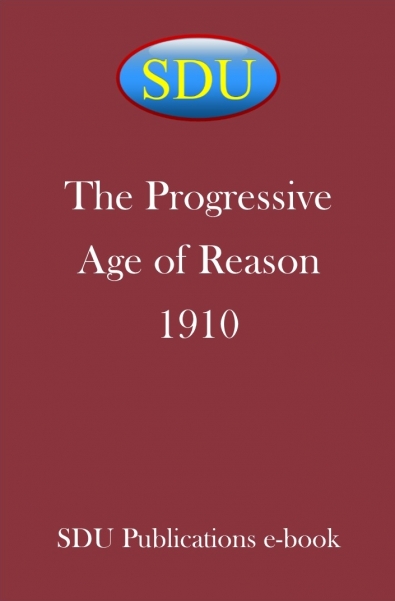DESCRIPTION
Published in 1910 | 656 pages | PDF reader required
The only apology I can offer for presenting this book, is that I feel confident that there was a time in my life spanning a period of at least forty years that I would have been glad indeed of the opportunity of reading a book that afforded a clew in regard to the law of our being, relating to the here, and the hereafter, the answer to the great question "After death, what?" Or as Job puts it: "If a man die shall he live again?" A book that sheds the light upon the Bible, both the Old and the New Testament scripture; the origin of the Christian religion and to what extent we are justified in accepting the Protestant or Catholic claim, as does this book however imperfectly it may have been set forth.
An author invariably has in view his or her prospective readers, and in whatever department of literature whether fiction, science, religion, materialism, agnosticism or what you please, he or she labors to make his or her work attractive and inviting to the whole of the class, whichever it may be.
I am no exception to this rule, and will name a few of my prospective readers. All who are interested in this question "Does our consciousness terminate with the death of the body, or do we survive this change?" All of this class are cordially invited.
All who may have some misgivings or some doubts in regard to the Scriptural plan of salvation and may consider it a little narrow and that it's foundation, the Bible may not be the "infallible word of God" throughout, and that the original plan (the Papal) and the revised plans (the Protestant) may smack too much of Priestcraft with a slightly mercenary tendency. All such are cordially invited to read this book.
All who are dissatisfied with ethical or economic conditions, and think they might be improved were not the question of meum et tuum so much in evidence, and that the whole object in life with so many is to see to what extent one can corner and monopolize the necessities of life, and force his weaker brothers to pay tribute for all the commodities of commerce. All such are cordially invited to read this book. …

